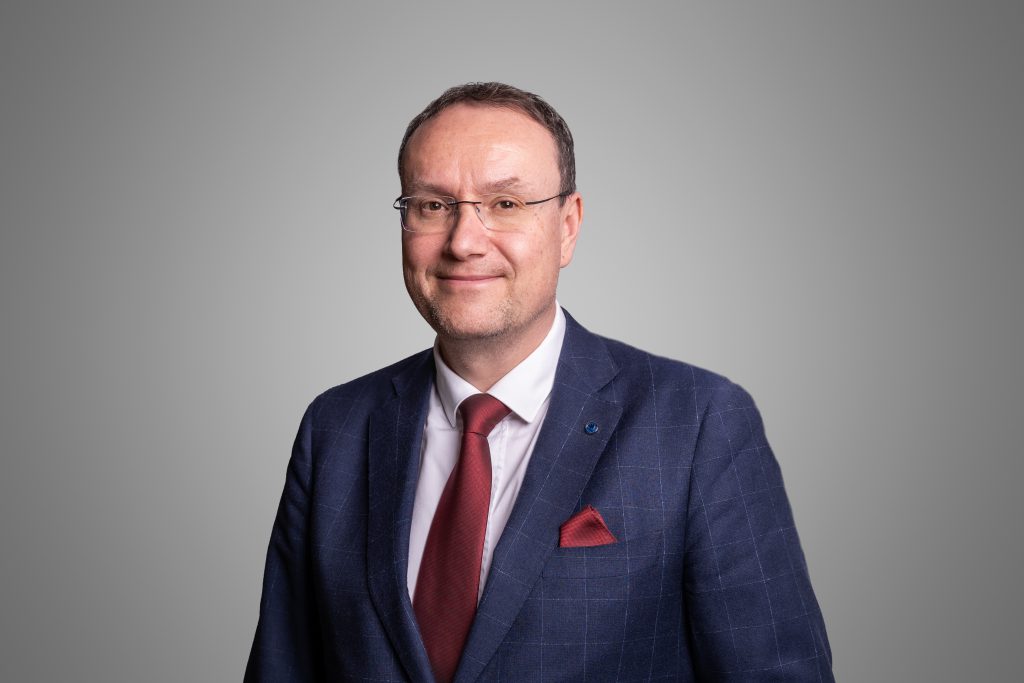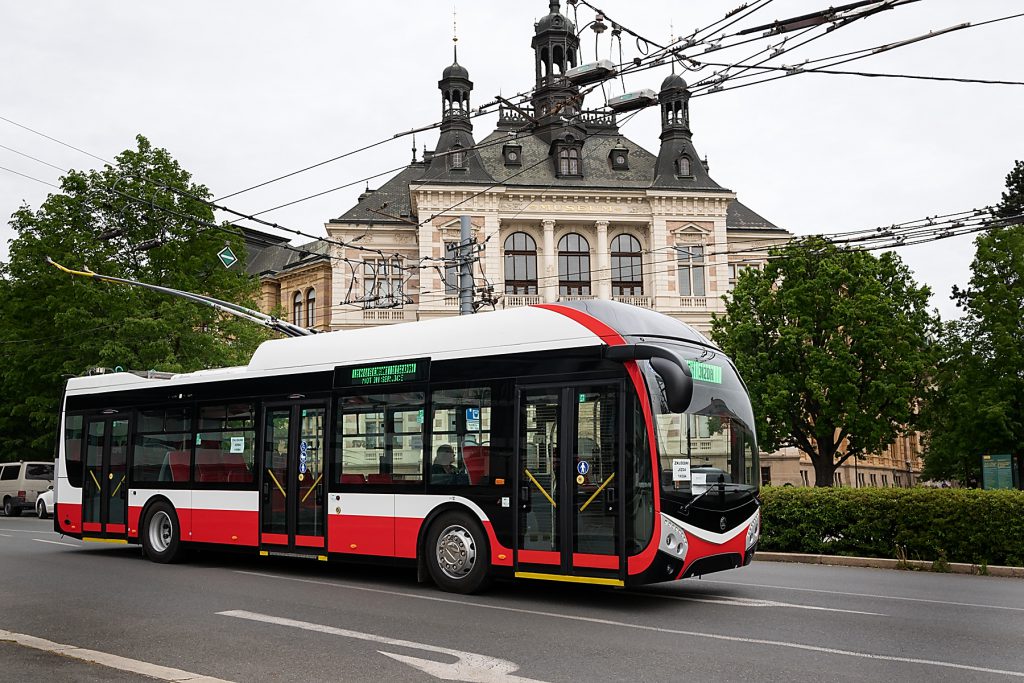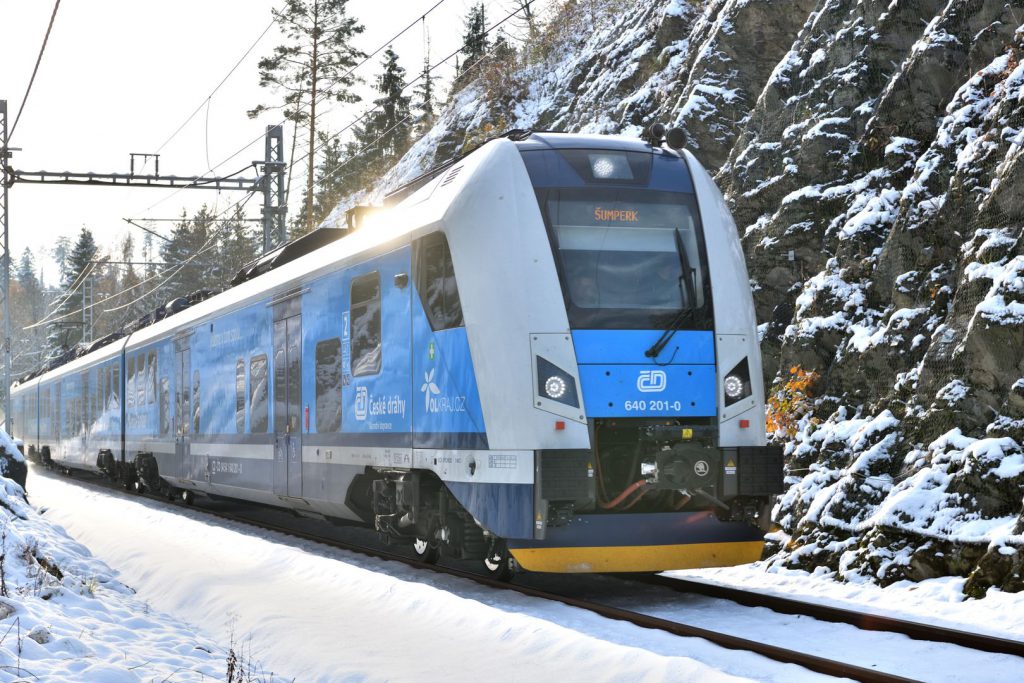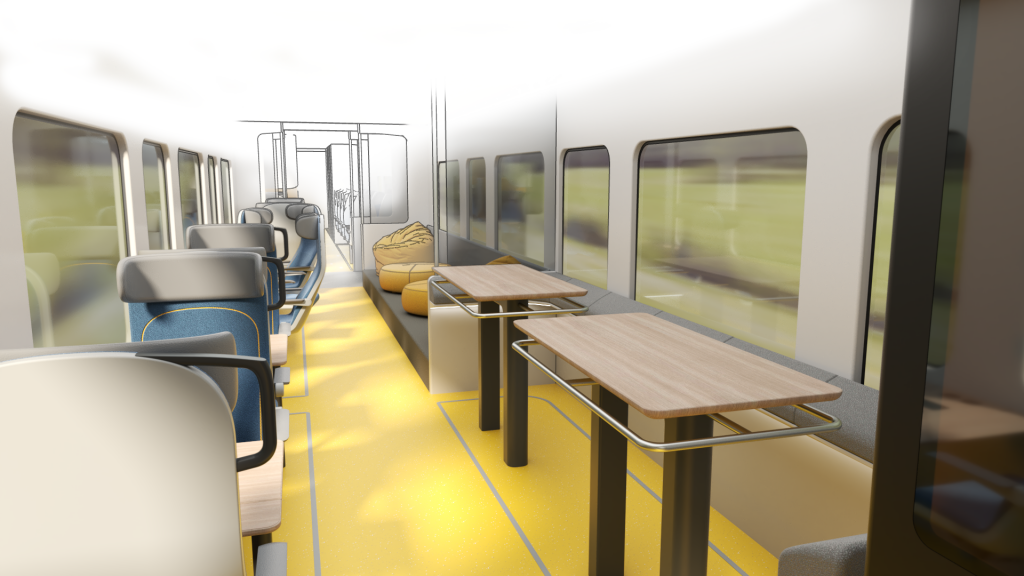How are competences divided in the Škoda Group now? Are you number one now?
Yes. We changed the structure of Skoda and took a step back.
Towards Czech management?
More Czech management is more a result of the fact that we want to simplify processes and get them under control. We have started to manage the group through the board of directors again, which is more common in our region. Škoda operates as a domestic manufacturer in the Czech, Finnish and, let’s say, Turkish markets
Škoda Group owns half of the bus manufacturer Temsa from 2020 – ed.). All factories are managed through local management and we delegate to them the powers that are more efficient to do there. The directors responsible for subsidiaries such as Škoda Pars, Škoda Electric, Škoda Transtech or Škoda Transportation also have supply chain overlap under them. At the same time, the new Chief Operating Officer, Zdeněk Sváta, is above them all.
And what does Didier Pfleger, who was CEO until last October, do?
He is no longer active in management. His role is now more of a consultant.
Škoda has recently had great success in tenders. What’s your backlog of work now?
We’re at €3.2 billion (about 80 billion crowns), which is roughly three years’ worth of work relative to last year’s sales of €1.38 billion (34 billion crowns). If the ratio were higher, we could already have capacity problems. In the long term, we want to have a book-to-bill ratio of annual orders to sales of between 1.1 and 1.2 at Skoda. To make our growth sustainable. Under PPF, over CZK 5 billion was invested in production capacity. Now we need to steadily utilise these capacities and increase production without making further large investments.
You won a contract for Jančur’s RegioJet for 3.5 billion. You replaced the Polish company Pesa.
Did you have to work very hard?
RegioJet is the largest private operator in the Czech Republic. For us, this contract is essential because it is a major breakthrough into B2B business with private carriers. We are showing the competition that we are capable of doing this. For Skoda, this is an important complement to B2G contracts for national rail carriers or municipal transport companies. Mr Jančura has a long-term vision for the railways. He is not only looking at the price of the product, but also at long-term costs and availability. The contract was not only about price, but also about service. We offered a better and more long-term solution than our competitors.
How big is the Czech-Slovak market for Škoda? Here you have succeeded in contracts for Czech Railways and the Prague Transport Company.
The Czech Republic and Slovakia make around 35 to 40 percent, which is relatively high. But we need to have one or two markets that we can think of as our home markets. Which we know well and can talk to potential customers there from the beginning. Ask for experience. It’s the same with Alstom in France or Siemens in Germany.
You have reduced the number of business regions to two. Both are in Europe. Is this an indication of your priorities for bidding abroad?
No. For Skoda, we need selective participation in tenders, but on a global scale. But we will be more selective. We cannot do like Alstom and look at things across the board. Since January, we have completely new criteria with which we look at tenders. In markets we know well, we are developing new solutions that meet local customer requirements. We have a strong domestic market. Key foreign markets that we know well are Germany, Italy, the Baltics, Scandinavia and the Balkans. But if a tender for rolling stock comes up elsewhere that makes sense, we won’t rule it out in advance. As far as component manufacturing and buses are concerned, here it is more of a commodity and with certifications from Europe you can go virtually anywhere.
Let’s get to the results. How was last year for the Škoda Group?
We’re not doing as well as I’ d like. We have a lot of growth – we produced 400 cars, which is 88 percent more than in 2022. And our sales are up 81 percent year-on-year to €1.4 billion. But EBITDA operating profit is down significantly, by 57 percent. To just under €22 million (about CZK 550 million). The negative effects of the covid and the Russian aggression in Ukraine caught up with us, which resulted in delays in deliveries. The terms and conditions of some historic projects are therefore being renegotiated to take account of these force majeure effects. We made up a lot of the backlog towards the end of the year. We hope to convince operators, municipalities and counties that we are doing our best to complete the contracts.
Simply put. You have sales and no margin.
The result was affected by contractual penalties and higher overheads. We are definitely not where we want to be in terms of profitability. That is why we are transforming production towards greater efficiency. So that we can fully utilise the capacity that we have. We are looking significantly inside the company to improve the speed in producing each additional unit, deciding what to do internally and what to outsource. On a positive note, in 2024 our production has stopped slipping in the days and we have stabilised it. We are succeeding in delivering on the plan we set out.
Has engaging Indonesian workers helped reduce delays? How many do you have now?
Over 250 people. It helped us, but at the same time we had no other choice. Trained Czech electricians or welders would have been better, because the Indonesian people were initially less efficient in production. Despite the difficulties, it was a positive experience.
Will their number continue to grow in Pilsen?
As I said, we have managed to stabilise production at just over five million hours a year. So we don’t need more for the time being.
Do I understand that your task at Skoda is to use your experience from Scania and from managing the components division to make production more efficient? Because you have new orders.
Manufacturing, development and engineering are connected vessels that, when they fit well, can be produced more easily and efficiently. Škoda ‘s portfolio includes trains, electric units, passenger cars, trams, metros, buses and trolleybuses. We have components, servicing, digitalisation and signalling (safety technology on the railway – ed.). Important product expert positions are being created. These managers will make sure that no deviation from the basic parameters is made in the tenders. In addition, to increase efficiency, we are preparing a platformisation in engineering, which Laurent Fromont, Director of Engineering, has been working on for almost a year. On the railways, there is an increasing standardisation of conditions between countries, which took place 25 years ago in the automotive sector. For example, we will not just have a tram for the Czech Republic, but a tram platform that can run in Kassel, Germany, Bergamo, Italy, or Budapest, Hungary, which will reduce production costs.
According to the data of the railway association ACRI, Škoda will invest two billion crowns in development this year. What will it go for?
Probably the biggest thing we’re doing right now is working on the next generation of RegioPanter. Compared to the older version, it will be significantly lighter and more high-tech. I believe we will soon be able to say more about the progress of the new vehicle.
You are cooperating with the Polish Solaris on a large order for 112 articulated trolleybuses for Genoa. Can this be considered a strategic cooperation?
We work with other manufacturers on a case-by-case basis. Depending on how it is advantageous for us in tenders. In the case of Genoa, the connection with Solaris is advantageous only because the Poles have a service in Genoa. However, it is not an exclusive cooperation. An important partner is the Czech company SOR, which has made a lot of progress in the body of the vehicles – that is, in the mechanical part. We are close to each other in terms of products and the cooperation will definitely continue. Skoda will be active in buses. We have ambitions to supply complete electric buses, including our bodywork.
Is there any outlook on what share buses may one day have in Skoda’s numbers?
I don’t want to make any commitment as to whether it could be 20, 30 or 35 percent of revenue. But I think it’s time for Skoda to open that book. There aren’t that many intercity bus manufacturers, and yet the market is universal because buses have become relatively standardized over the last 20 years. The efficiency of the solution plays a role, of course, because buses are more of a commodity than trains. But we can also take advantage of the fact that Turkish Temsa is very well established in conventional buses. But trolleybuses are still the primary buses and I believe that the share of battery electric buses will continue to grow.
There have been speculations that Škoda would be interested in acquiring the Spanish manufacturer Talgo. Is this a speculation that you completely rule out?
There are a lot of questions about this, and I understand that. But at the same time, we cannot comment on market speculation. Among other things, because Talgo is listed on the stock exchange.
Under PPF, more than CZK 5 billion was invested in production capacities. Now we have to steadily increase the capacity and increase production.
Source: https://archiv.hn.cz/c1-67215020-vyrabet-lokomotivy-nema-pro-skodovku-smysl-rika-jeji-francouzsky-sef
Author: petr.zenkner@hn.cz






